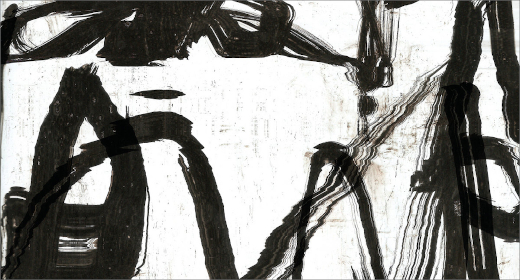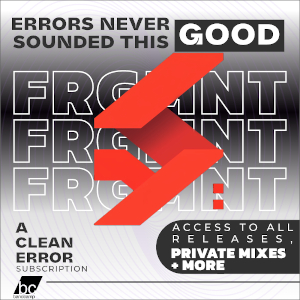Stephen Hummel further investigates a potential solution to appease file-sharers and artists as well as his views on live and recorded music.

One of the voices that has been largely missing from the discussion about P2P music file sharing is that of the independent music producer. We hear things almost everyday from blogs, mainstream media, composer societies, industry analysts, even the people that represent what is left of the major record labels, but independent music producers tend to remain silent on the subject. You see, independent producers are supposed to be the ones quietly exploiting the many benefits of the new digital music industry, while we watch the former music industry crumble away.
With this in mind, I have been asked by Igloo Magazine to expand on a note that I recently put up on my personal Facebook page, a note that expressed my feelings on what I hear people saying about file sharing, on a regular basis.
My original note focused on the idea (that has been perpetuated by the media and bloggers) that recorded music should now be considered free promotion for an act’s live show. I have expanded this piece to also include a few other notions about P2P file sharing and a potential solution to appease both file-sharers and artists.
Regarding the issue of recorded music being considered free promotion for live shows – this, to me, is the same as saying that a film producer should consider his/her film as free promotion for the forthcoming theatrical production, or that a video game company should be giving away their video game to promote a theme park ride.
Recorded music is an art form in itself and the experience the listener has with the musical recording is very different, but no less important, than the experience one can have at a live music show. Recorded music continues to have an important role in our world, in and of itself – just look around at all the people blaring music in their cars or blocking out the world with earbuds.
Recorded music is an art form in itself and the experience the listener has with the musical recording is very different, but no less important, than the experience one can have at a live music show.
In my own work (that I currently make as SubtractiveLAD), my albums are conceived as complete works, in which I arrange pieces of music that (hopefully) tell a story together. These albums take months to create, from conception to the final product, and consist of layers upon layers of sound that I have specifically woven together to get the music from my head to the hard drive. I do not compose these works with a live show in mind, in fact, it would be extremely difficult to perform (live) any one of my recent tracks with even an army of musicians on stage with me… it would simply be impractical. Of course, I could simply press play on a laptop and jump around behind it, looking busy… but that’s just silly, isn’t it?
Don’t get me wrong, I do enjoy playing live and, recently, I have even been going back to some of my improv roots, exploring solo work in videos that I have been uploading to my new YouTube channel (… shameless plug). But, for me, my recorded works do not correspond with what I want to do live. People couldn’t come to my shows expecting to hear the tracks off my albums.
There are many acts that I enjoy the albums of that I would have no interest in seeing live and many acts that I have seen live that blew me away when I had dismissed their recordings. Should I be punishing artists with great albums that don’t translate well live?
On the financial side of things, breaking even on a small tour for an indie act is a real achievement… live shows aren’t the reliable money-makers for artists that the media would have you believe. What works for Bon Jovi would not translate to the average smaller act.
People also frequently suggest to me that I should be looking primarily to other potential income streams, such as subtractiveLAD related merchandise or licensing opportunities if I wish to earn any kind of financial compensation for my recorded works. My answer is simply this – why should I have to sell t-shirts, if it is my music that people want from me? Shouldn’t it be about the music? And what if I don’t want to sell my track to a commercial about toilet paper? Just because there are other potential income streams for my music, why does this mean that I should be happy to see my albums and tracks all over the internet for free? I’m not saying that artists shouldn’t capitalize on these other potential income streams but the fact that these other streams exist does not negate the value of the album or songs, in themselves, as items for sale. Simply put, one stream does not negate the other.
Some people point to studies that seem to show that file-sharing actually increases sales and helps artists reach potential new fans/customers. I think that we have to be careful with any of these studies – it is much too easy to skew the results one way or the other, depending on what questions are asked (and by whom). Just for some perspective, here is a brand new study that completely refutes the results of a survey from just a few years earlier (now suggesting that P2P sharing is very detrimental to sales): [PDF]
One can intuitively assume that file-sharing can be a great promoter of an artist’s work but whether this actually helps generate income for the average independent artist is still very much up for debate. Without being able to directly analyze what is truly going on with file sharing, we will continue to have these conflicting reports… and privacy issues might prevent this from ever happening.
Some people point to studies that seem to show that file-sharing actually increases sales and helps artists reach potential new fans/customers. I think that we have to be careful with any of these studies – it is much too easy to skew the results one way or the other, depending on what questions are asked (and by whom).
Part of what is occurring on the P2P front is that nobody wants to hear the industry complaining – there is such a strong backlash against the major record labels now that file-sharers are using this as a justification for freely distributing any and all music online. There is such a long history of artists getting screwed over by The Man that bringing that world down by any means seems the right thing to do. But I think we might be throwing the baby out with the bathwater here. We could be clear cutting the forest, instead of sustainably managing it. What might be hurting The Man could very well be slowly killing the independent artist.
If you really want to get an idea of what the current online music market looks like, you might like to check out this handy chart from Information is Beautiful.
From the chart in the link above, you can see that it can be quite a challenge earning any kind of sales or streaming-related income from recorded music, in the current online market (and this is without considering the impact of file sharing). So where do we go from here? It is clear now that P2P music file-sharing is not going anywhere and the solution cannot be to treat all file-sharers as criminals. If we can agree that recorded music has real value in our world, is there a way that music fans can share the music while artists get financially supported, along the way? There might, of course, continue to be a small market for physical releases on CDs or vinyl, for some time into the future, but it would seem crucial that artists are eventually able to monetize what is occurring on the P2P networks.
In Canada, where I live, the mainstream media has been recently reporting on what the Songwriters Association of Canada (SAC) thinks might be a solution, essentially a $10 per month sharing fee, paid through the file-sharer’s ISP. This idea isn’t anything really new and is quite similar to what the Electronic Frontier Foundation (EFF) has been proposing for years now.
There are, potentially, some important differences between what the SAC is proposing and what the EFF has been fighting for and these differences could make or break whether this kind of licensing concept will succeed or fail, in the long term. One of the most important differences is that the SAC is proposing to make their $10 monthly fee an automatic one that gets added to a consumer’s internet bill – requiring subscribers who don’t want licenses to notify the SAC and agree that they will not engage in online music file-sharing. I believe that a voluntary subscription fee, closer to what the EFF has proposed would sit better with consumers. Nobody likes to have fees automatically added to bills and the many internet users that don’t participate in file-sharing wouldn’t have to take the extra step of contacting the SAC to avoid the fee.
As the details of the SAC proposal haven’t been made clear, in terms of how the file-sharing will be tracked and the money divided, etc, I can only hope that it will be close to what the EFF has been proposing – for me, the EFF proposal could be the way forward for music file-sharers and artists/producers, alike… and if it ends up working in Canada, maybe it can work in other markets too? On the flip-side, if the SAC screws this up, we could be looking at an even scarier situation for recording artists in Canada, with what is left of the current music industry in complete shambles.


























